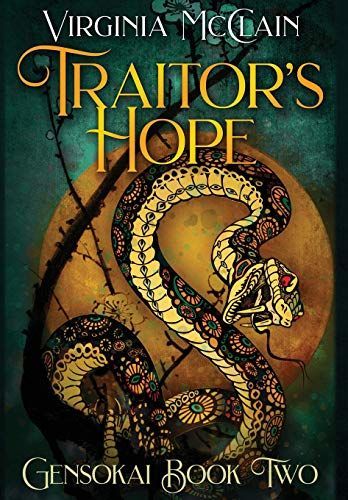
Traitor's Hope
Betrayal of mind. Betrayal of power. Betrayal of heart. For centuries the Rōjū council silenced all who opposed them, spreading lies and killing innocents, ensuring female Kisōshi were little more than a myth. Now, with the corrupt council deposed, the land of Gensokai reels, taking its first steps towards recovery. The New Council attempts to corral renegade allies, and Taka takes charge of a frontline infirmary, placing her in the heart of the battle. But to survive, she will have to rely on a person she cannot possibly trust. Meanwhile, Mishi sets out to lure a vicious band of mountain raiders into the open. Many have tried to subdue them, and so far all have failed. Yet she battles more than bandits. Her mind betrays her, and she fears it is only a matter of time before her kisō and katana turn against her too. Surrounded by enemies and thwarted at every turn, can Mishi and Taka survive long enough to bring peace to their fractured homeland?
Reviews
Kerry Gibbons@kerryiscool